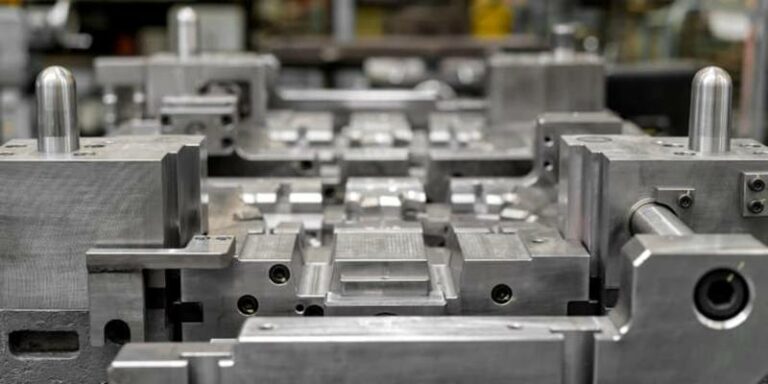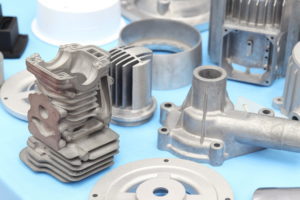Things about Stahl Specialty Company
Things about Stahl Specialty Company
Blog Article
Some Known Details About Stahl Specialty Company
Table of ContentsThe Basic Principles Of Stahl Specialty Company 3 Simple Techniques For Stahl Specialty CompanySome Known Facts About Stahl Specialty Company.Stahl Specialty Company Can Be Fun For EveryoneStahl Specialty Company - The Facts
The refined difference depends on the chemical web content. Chemical Comparison of Cast Light weight aluminum Alloys Silicon advertises castability by minimizing the alloy's melting temperature and boosting fluidness throughout casting. It plays a crucial role in allowing intricate molds to be filled accurately. Additionally, silicon adds to the alloy's toughness and use resistance, making it beneficial in applications where resilience is crucial, such as vehicle components and engine parts.It also improves the machinability of the alloy, making it less complicated to process into finished products. In this way, iron contributes to the total workability of light weight aluminum alloys.
Manganese contributes to the stamina of aluminum alloys and boosts workability. Magnesium is a lightweight element that provides stamina and influence resistance to light weight aluminum alloys.
It enables the production of light-weight elements with outstanding mechanical properties. Zinc enhances the castability of light weight aluminum alloys and aids regulate the solidification procedure during casting. It enhances the alloy's stamina and firmness. It is typically found in applications where elaborate shapes and great information are essential, such as attractive castings and specific vehicle parts.
The 8-Minute Rule for Stahl Specialty Company
Since aluminum-silicon alloys have excellent casting homes, high gas residential properties, easy procedures, and excellent deterioration resistance, aluminum-silicon alloys are most typically made use of in the die-casting sector at home and abroad. At the very same time, aluminum-silicon alloys are additionally relatively early and extensively identified alloys developed and made use of in die-casting. After continuous research and improvement, a lot of the present worldwide mainstream aluminum-silicon alloys have actually been finalized and are nothing greater than A356, A360, A380, ADC12, B390, and A413.
The key thermal conductivity, tensile strength, return stamina, and elongation vary. Select suitable raw materials according to the efficiency of the target item created. Among the above alloys, A356 has the highest possible thermal conductivity, and A380 and ADC12 have the most affordable. The tensile limitation is the contrary. A360 has the best return toughness and the highest possible prolongation price.

The Definitive Guide to Stahl Specialty Company
In accuracy spreading, 6063 is appropriate for applications where complex geometries and top quality surface area finishes are extremely important. Examples include telecommunication units, where the alloy's premium formability permits sleek and visually pleasing designs while keeping structural integrity. In a similar way, in the Illumination Solutions sector, precision-cast 6063 parts develop elegant and efficient lights components that call for elaborate forms and good thermal efficiency.
(https://www.huntingnet.com/forum/members/stahlspecialc.html)
It results in a finer surface finish and far better deterioration resistance in A360. Moreover, the A360 exhibits remarkable elongation, making it excellent for complex and thin-walled elements. In accuracy casting applications, A360 is appropriate for sectors such as Consumer Electronics, Telecommunication, and Power Tools. Foundry. Its improved fluidness enables elaborate, high-precision components like smart device casings and interaction gadget real estates.

In accuracy casting, light weight aluminum 413 radiates in the Customer Electronic Devices and Power Tools sectors. This alloy's exceptional rust resistance makes it an exceptional selection for outside applications, ensuring resilient, long lasting products in the stated industries.
Fascination About Stahl Specialty Company
When you have actually decided that the aluminum pass away casting process is suitable for your job, an essential following action is selecting one of the most appropriate alloy. The aluminum alloy you choose will significantly influence both the casting process and the properties of the end product. Due to this, you must make your decision thoroughly and take an informed technique.
Establishing the most suitable aluminum alloy for your application will certainly imply weighing a vast range of features. The first classification addresses alloy features learn the facts here now that affect the production process.
The alloy you pick for die spreading directly influences several elements of the spreading process, like how very easy the alloy is to collaborate with and if it is prone to casting flaws. Warm splitting, also referred to as solidification cracking, is a common die spreading issue for aluminum alloys that can lead to inner or surface-level tears or fractures.
All About Stahl Specialty Company
Specific light weight aluminum alloys are much more at risk to warm cracking than others, and your option ought to consider this. One more common defect located in the die casting of light weight aluminum is pass away soldering, which is when the cast sticks to the die walls and makes ejection difficult. It can damage both the cast and the die, so you ought to search for alloys with high anti-soldering residential or commercial properties.
Rust resistance, which is already a notable feature of light weight aluminum, can vary significantly from alloy to alloy and is a necessary characteristic to consider relying on the ecological problems your product will certainly be subjected to. Wear resistance is another residential property frequently sought in light weight aluminum products and can set apart some alloys.
Report this page